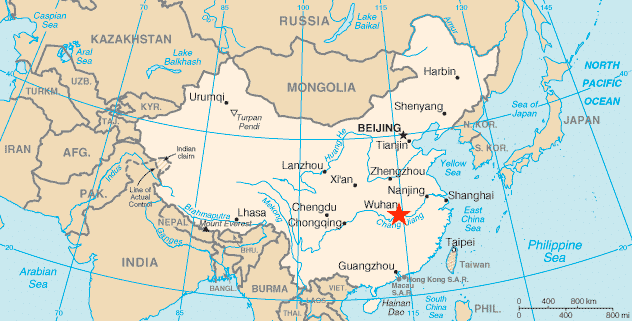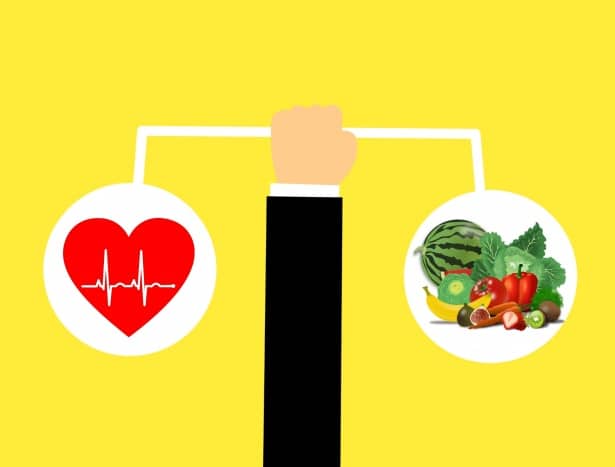 Every day we hear more news of the novel coronavirus COVID-19 that has swept through the Hubei Province in China. The news reports seem to offer contrasting views day by day on whether an inflection point has been reached. Meanwhile the death toll keeps climbing. How can we prepare for this disease?
Every day we hear more news of the novel coronavirus COVID-19 that has swept through the Hubei Province in China. The news reports seem to offer contrasting views day by day on whether an inflection point has been reached. Meanwhile the death toll keeps climbing. How can we prepare for this disease?
The initial response in China to the 2003 SARS epidemic was widely seen as inadequate at first with the disease being kept secret. Ultimately it spread to Hong Kong and Singapore killing 774 people.
That marker has already been exceeded by COVID-19. In a companion post I explore How concerned should those of us living outside China be?
What can we do to prepare?
I’m not an epidemiologist, but watching the news through a risk management lens, I see some initial misteps – withholding information and encouraging mass gatherings to take place in the epicentre – followed by stern lock-down measures as priorities were rapidly reshuffled when the magnitude of the risk became obvious. Wuhan remains locked down. The health system in Wuhan, the epicentre of the outbreak, is now overwhelmed.
I’ve been impressed with the subsequent Chinese response in terms of effort and intent. Who else could build a hospital in 6 days? Whether these measures are effective or too late, remains to be seen.
Even if the Chinese authorities have not stopped the pandemic from spreading, they may have at least slowed down the spread. That’s something that we should be grateful for as it’s buying us time to prepare. It’s up to us to use that time wisely, both individually and collectively.
Personal Preparation
In my opinion it would be wise to plan that the coronavirus may get to New Zealand and may become a sustained epidemic during 2020. If it becomes part of the background seasonal disease burden, each of us may not be able to avoid it entirely. However, it may be beneficial to avoid contracting the disease during the height of the first wave, when our health system will be heavily loaded.
So, what can we do to prepare personally? While the disease is not known to be present in New Zealand the Ministry of Health has advice for travellers:
- avoid close contact with people suffering acute respiratory infections
- wash hands frequently, especially after contact with ill people or their environment
- avoid close contact with sick farm animals or wild animals
In addition the MoH advises that people with symptoms of acute respiratory infection should practice cough etiquette:
- maintain distance
- cover coughs and sneezes with disposable tissues or clothing
- wash hands.
The MoH advice could equally apply in New Zealand should the pandemic arrive. Absent from the MoH advice is wearing surgical masks. While the images that we associate with this outbreak is of people wearing face masks, the scientific consensus is that the ordinary type of ill-fitting “surgical” mask is not a good protection from catching the disease due to air gaps around the edges and due to coronavirus entry via the eyes.
Much more important is having good personal hygiene. A primary route of infection is sneezed particles or secretions that we pick up on our hands and then transfer when we touch our face. Research shows that touching the face is a remarkably frequent occurrence for most of us. The recommended washing period is 20 seconds. I’m washing my hands more frequently and thoroughly and also trying not to touch my face, but the habits of a lifetime are hard to change!
While this is good advice at any time, there is also a few other things we can do:
- attend to any underlying conditions
- reduce exposures
 If one has an underlying illness that is not properly controlled, such as high blood pressure, then now would be a good time to address that. Those of us in sedentary occupations need to look for opportunities to be a bit more active. The research is that every little amount helps to make us healthier. These are good things to do anyway. It the pandemic never arrives we’ll still be better off for being more active and healthier.
If one has an underlying illness that is not properly controlled, such as high blood pressure, then now would be a good time to address that. Those of us in sedentary occupations need to look for opportunities to be a bit more active. The research is that every little amount helps to make us healthier. These are good things to do anyway. It the pandemic never arrives we’ll still be better off for being more active and healthier.
Another aspect is our exposures. Long distance travellers will be very conscious of being cooped up in a small volume with others who may have come from afar. The emergence of this novel virus is a timely reminder to reflect on whether we really need to make that journey. Before a pandemic strikes is a great time to try out other forms of communication, such as video links. Reducing our long-distance travel also has co-benefits for climate change.
Closer to home I’ve realised that I might not be able to use the local gym if the pandemic strikes. So I’ve asked my trainer for a simple exercise routine that I can do at home if I need to.
Organisational Preparation
What can we do as organisations to prepare for a possible pandemic? While we are principally focused on our own business, we have also helped other organisations with pandemic planning. In an accompanying post Geraint Bermingham recounts important lessons learned from his experience on the frontline of responding to the SARS epidemic in an international airline.
Some of the effects are being felt already in New Zealand – tourism, export logs, and seafood are just a few examples. The effects are hard to predict as it depends on the reactions of others, such as countries closing borders. Global supply chains are famously interconnected and will be severely hampered if the quarantine at city level in China goes on for much longer.
The World Health Organisation recommends against border restrictions as they tend not be effective, and are economically damaging, which the poorest societies are least well placed to withstand. These are the same societies where diseases are most difficult to eradicate once they take hold. However, the Herculean measures taken by China to quarantine whole cities to contain the outbreak sets an example which others may follow. Already we are seeing borders closed in many countries, including New Zealand, to non-nationals who have recently been to China.
At Navigatus we’re doing several things to prepare:
- testing our pandemic plan: our plan is for staff to work from home. We’ve already had all staff confirm that they can access our systems remotely from home and are holding a trial day where most of us will work entirely from home
- system documentation: reviewing the documentation of our business systems to ensure it’s all up-to-date
- managing cashflow: focussing on getting our jobs completed and the income in. Travel costs may fall anyway during a pandemic which will help.
We’re also clarifying our expectations as a team of ourselves when one of us is sick, especially with mild symptoms. We have revisited the heroic “must be at work to get the job done” culture. That’s difficult in an organisation where we work hard and closely in teams to deliver on our client’s projects. But we also need to be mindful of the health and welfare of our colleagues. We all know the idea but it’s about walking the talk. It’s also about trusting each of us to make the right calls when they may be fit enough to do some work but still possibly infectious. Having a well-tested plan to work from home will be a great help.
Summary
Whether or not the COVID-19 coronavirus becomes a global pandemic is beyond our individual control. But there are things that we can do to prepare, and mostly those are good to do anyway.
About the Author – Kevin Oldham
Kevin Oldham is a director of Navigatus with a depth of experience in helping clients to achieve success in an uncertain context. A brief profile for Kevin can be found here.

Comments (2)
[…] in accompanying post I comment on what we at Navigatus are doing to prepare in case the epidemic takes hold in New […]
[…] now have COVID-19 (please see Kevin Oldham’s excellent personal perspectives in earlier posts), we’ve had SARS II, Swine flue, Middle Eastern flu, Ebola – the list goes on […]